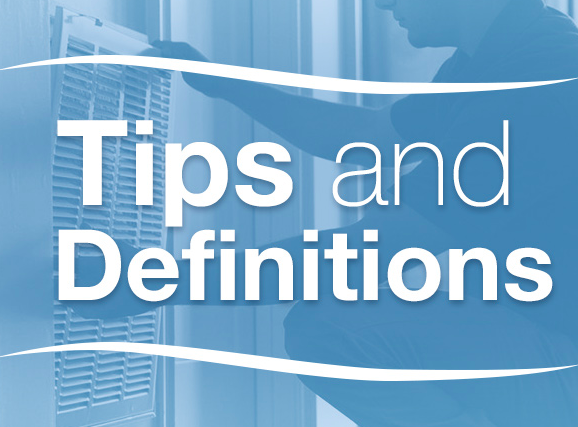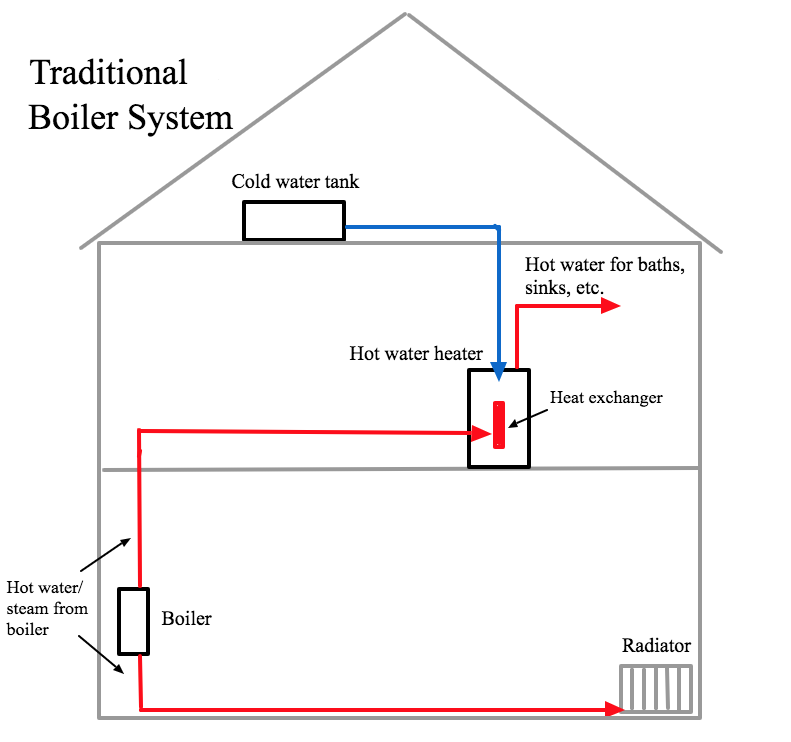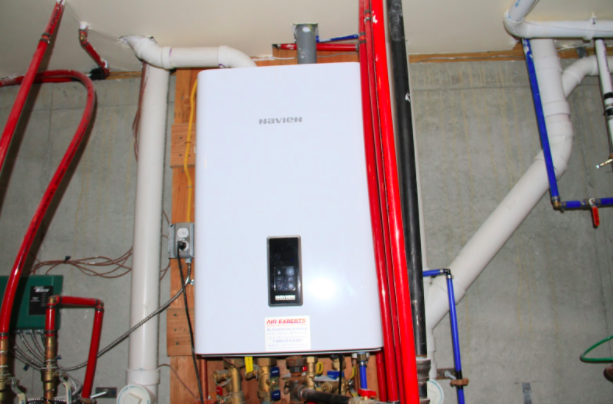
Don’t worry. We’ll break it down for you.
In this article, we’ll explain the difference between “combi” and “traditional” boilers and the pros and cons of each.
Combi boilers provide hot water on demand, traditional boilers store it
First off, combination boilers and traditional boilers both have the same 2 jobs. They both need to:
- Heat your home
- Provide hot water
Now, they both heat your home in essentially the same way: the boiler heats water then sends that hot water/steam throughout the house via radiators or radiant floor systems where it gives off its heat to warm the air.
So the big difference between these two boils down (pun intended) to how they provide hot water:
- Traditional boilers (also called “regular” or “conventional” boilers) heat water inside a large storage tank on an ongoing basis.
- Combination boilers have no tanks because they only heat water as it’s needed (i.e. when you turn on a hot water tap).
Let’s take a closer look at how both boilers heat water…
How a traditional boiler heats water
A traditional boiler heats water with the help of several storage tanks:
- Cold water tank
- Hot water tank (i.e. water heater)
- Expansion tank (if needed)
Your cold water tank collects and holds water from your home’s main water line. Every time hot water is used, the cold water tank feeds more water into your home’s hot water tank to be heated.
The water in the hot water tank is kept hot by coils (seen as the “heat exchanger” in the image below) filled with steaming water from your boiler. These coils keep the water in the tank hot and ready for use at any moment.
How a traditional boiler heats water (and your home).
Depending on the model of your traditional boiler, you may also need an expansion tank. The expansion tank basically is there to protect the system from high-pressure levels. You see, as water is heated, it expands. So if too much water is heated (or overheated), the expansion tank basically receives any overflow water to lower the temperature/pressure in the hot water tank.
Pros of a traditional boiler:
- Can keep up with high hot water demand (great for families who use many hot water appliances at once)
- If boiler breaks down, you’ll still have access to hot water from the hot water tank
Cons of a traditional boiler:
- Requires a lot of space (3 different tanks plus the boiler)
- You can only use as much hot water as is available in the tank
- High energy loss (if hot water tank isn’t insulated)
- Higher install price
How a combi boiler heats water
A combination boiler, on the other hand, doesn’t need any tanks to heat your water.
You see, any time a hot water tap is turned on in your home, cold water from your home’s main water line runs through the boiler, is quickly heated by coils filled with hot water, then rushes directly to the faucet calling for hot water.
Cold water enters the combi boiler (seen above), gets heated inside the boiler and is sent directly to the hot water tap when needed—all without the use of a hot water storage tank.
Pros of a combination boiler:
- Very little space required
- Endless amounts of hot water
- Cheaper to install
- No “standby” heat loss since water is only heated as needed
Cons of a combination boiler:
- Can only run one hot water tap at a time
- If boiler breaks down, no access to hot water
Need a quote for a boiler? Ask a New Jersey tech
Just contact us. We’ll send over a tech who can inspect your home and offer a fair quote for either a traditional boiler or a combination boiler.


